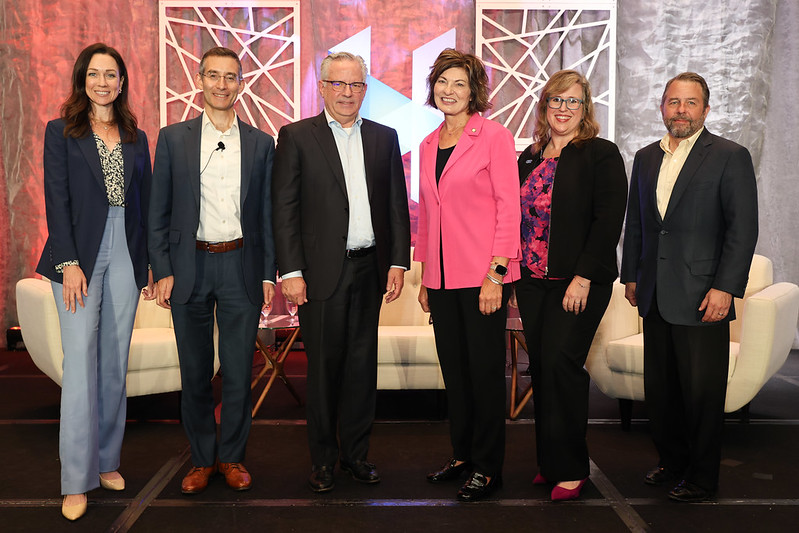How UpSkill Houston and the Burning Glass Institute Are Unlocking Talent for the Future
Published Dec 16, 2024 by Alex Peña
The Burning Glass Institute (BGI), with financial support from Walmart.org, selected the Greater Houston Partnership’s UpSkill Houston initiative as its partner to develop the Jobs That Mobilize (JTM) initiative. This initiative focuses on deploying BGI’s methodology to pinpoint jobs that offer the greatest opportunities for workers, are highly sought by employers, and are crucial for regional growth. Using its proprietary data, BGI analyzed occupational mobility in Houston by looking at job progressions and identifying overlapping and adjacent skills.
BGI's approach is based on the understanding that each worker’s skill set is shaped by their work and educational experiences and unique personal attributes. It acknowledges that no worker excels in all skills and that there is a balance between technical and work-ready skills.
- Source Job: A starting occupation a worker might be employed in.
- Jobs That Mobilize: Occupations that offer the greatest opportunity for workers, are highly sought by employers, and critical to regional priorities.
- Target Jobs: An occupation that a worker might end up in depending on their career path.
Throughout 2024, BGI and UpSkill Houston engaged employers in energy, health care, and other sectors, including those with technician, business services and technology roles. The goal was to validate the skills needed for JTM roles by identifying transferable skills that are broadly applicable and specific to individual jobs. The team focused on differentiating between critical “day one” skills and those acquired through experience or training. These strategically identified skills directly address pain points for employers and prepare talent for filling gaps in the most pertinent industries.
This effort resulted in the Work Ready Skills Matrix, which includes Proficiency Levels, and a Skills Validation Playbook. These tools are designed to help UpSkill Houston, employers, educators, and community-based training providers align on the skills required for identified Jobs That Mobilize. The Playbook aims to foster a shared understanding of necessary skills and streamline skills-first training and hiring processes.
Matt Sigelman, President of the Burning Glass Institute, reflects on the partnership with UpSkill Houston and how their collaborative efforts are setting a benchmark for skills-first workforce solutions:
"When the Burning Glass Institute sought a partner in applying our Jobs That Mobilize framework within the laboratory of a local community, working together with the Greater Houston Partnership and UpSkill Houston was a clear fit. In many ways, UpSkill Houston embodies what the framework is all about. Just as UpSkill Houston brings together industry, education & training, and policy makers toward a common goal of shared prosperity, the Jobs That Mobilize framework brings focus to the sets of jobs that represent pain points to employers, that are vital to targeted growth sectors, and that offer strong upward mobility and good wages for talent. Alongside the Partnership and UpSkill Houston, we were able to design nontraditional pathways that will unlock opportunity for workers and give employers access to hidden talent. The Partnership and UpSkill Houston opened to us networks they have built based on the deep trust they have earned with an array of stakeholders, enabling us to validate the framework and connect with over 100 educators, employers, and community organizations. I am excited to know that they have what it takes to carry this work forward and bring the framework to life. UpSkill Houston’s commitment to data-driven action and continuous improvement will certainly serve as an inspiration for other communities."
As the region embraces new opportunities in emerging industries, UpSkill Houston invites employers, educators, and community leaders to join the effort in shaping a skilled and inclusive workforce for 2025 and beyond.
Learn how you can partner with UpSkill Houston and be part of the solution for our region’s economic future.
Download the Partnership's 2024 Impact Report.
 The Houston Report
The Houston Report




















